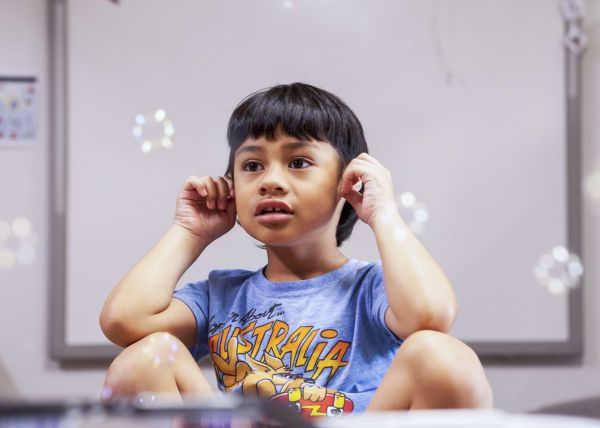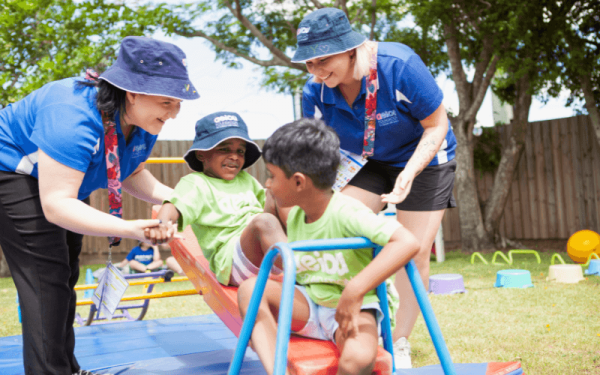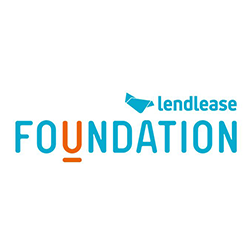Support
Early Intervention
AEIOU was established to enrich the lives of children with autism, in an environment that builds on their strengths and helps them to thrive.
We are known for our full-time service, and we are now pleased to provide greater flexibility to our families with part-time placements. Enrolments from two days a week to nine days a fortnight are available at all AEIOU centres, allowing families greater flexibility.
Read more about the program below.


Support
Choose the solution that’s best for you!
Options now include access to part-time therapeutic enrolment, as well as enrolment in our early learning supported childcare service as it becomes available in your centre location.
We ensure your child receives an evidence-based program that’s right for them and delivered within a natural environment. This approach not only enhances your child’s developmental progress but also empowers you - parents and caregivers - to actively participate in your child’s growth and learning.
Children enjoy coming to AEIOU because our supports are play-based, engaging and neuro-affirming.
Services
Our early intervention service includes:
- Holistic, integrated supports: Our model aligns therapy within a high-quality early childhood educational program. The key educators for your child share responsibility for your child’s developmental and learning journey.
- Responsive approach: Supports are customised to your child’s developmental level, interests, and abilities, to ensure they are relevant, engaging and strengths based.
- Naturalistic setting: Our small groups have a kindergarten-like environment. We aim to enhance your child’s access to natural settings and routines, social engagement with peers, and to nurture children’s skills development in a variety of learning and play environments.


- Parent involvement: We encourage family involvement and discussion with your child’s key educators about extending play-based learning at home. To support your child’s learning and development, we also provide training to empower you to support your child’s development through everyday interactions.
- Evidence-Based: Our approach is evidence based and responsive to each child, resulting in proven outcomes for children with autism and their families.
- Positive behaviour support: Our approach respects your child’s preferences and enables their meaningful participation in play–based learning.
If your child has a new or suspected autism diagnosis, we’re here to help.
Our team appreciates every child's unique strengths and qualities, and we value ensuring our spaces are respectful, inclusive and neurodiverse-affirming.
AEIOU provides therapeutic, early intervention services for children with autism aged two to six. The supports delivered at AEIOU best align to the principles of Naturalistic Developmental Behavioural Intervention (NDBI). That means we ensure that each child receives individualised, evidence-based support within a natural environment (just like childcare or kindergarten). This approach not only enhances each child’s developmental progress but also empowers parents and caregivers to actively participate in their child’s growth.
At AEIOU, we believe in the power of naturalistic, developmentally appropriate interventions to foster meaningful and lasting improvements in the lives of children and their families.
We also support families during the early years of a diagnosis.
- We can help families like yours to navigate the NDIS—even if you’re not yet sure which kind of therapy you’d like to explore for your child.
- We also support families to actively participate in and scaffold their child’s learning journey.
The team
With your child
Our transdisciplinary team includes early intervention specialists, speech pathologists, occupational therapists, behaviour support practitioners, early childhood educators, and allied health assistants. Together, they work seamlessly to support your child’s learning and care, ensuring all interventions and goals are supervised by experienced clinicians.
At AEIOU, we celebrate every achievement and support you at every step in your journey.


































